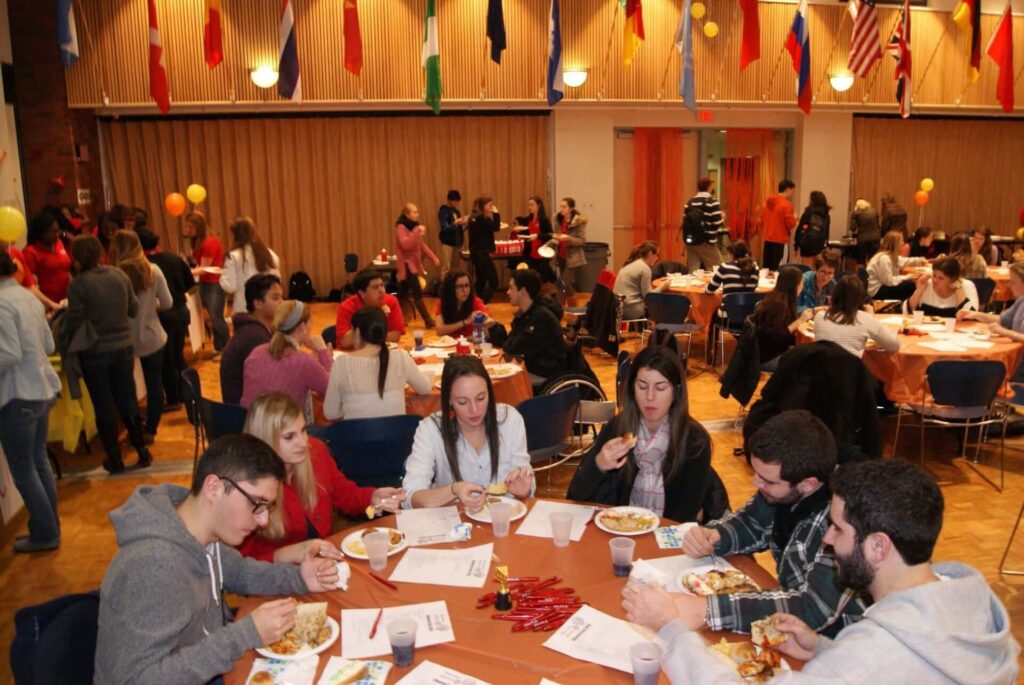by The Cowl Editor on January 24, 2019
Opinion

by Angela Bueso ’22
Opinion Staff
Growing up in a Central American country, I have always been very much exposed to American culture. From the movies and TV shows we watch to the toys we play with, and summer trips to the United States, I always considered myself to be very Americanized.
Nevertheless, visiting a country versus actually living in it are two completely different things.
During my first semester at Providence College, I was amazed by the vast differences between American and Latino culture. However, despite these differences, we are all united in our shared human experience.
Moreover, as each area of the United States consists of different kinds of people and culture, the same is true for Latin American countries: some are more liberal while others are more conservative; some have different values and traditions than others.
The term “Latinos” agglomerates a varying spectrum of very different cultures, nationalities, and customs into one very broad and practical word.
There are some similarities that most Latin American countries share, just like the way states in the U.S. share similar qualities.
Affection—Latinos are affectionate. You are taught ever since you are a child that you hug and kiss everyone as a way to greet them. When I mean everyone it is everyone: your aunts, your mother’s best friend, your pediatrician, your dad’s childhood friend, and basically everyone your parents know. Failure to greet them with affection may result in your parents calling you out for being “indifferent.”
In Mass, when giving the sign of peace, you do not just shake hands, but extend a fraternal hug to your community. This is something I realize Americans do not typically do when attending church on Sundays.
Timeliness—this may be a gargantuan stereotype, but some Latinos, especially Central Americans seem to have our notion of the time wrong. We are almost always late or just a few minutes early. There is even a joke back home referring to “Honduran time.” If a party is set to start at 6 p.m., people will start to arrive at 6:30 p.m., and everyone will be there by 7:30 p.m.
On the contrary, Americans seem to always be on time, and stick to strict schedules. If someone says the meeting starts at 5 p.m., everyone will be there by 4:30 p.m. This is a sign of respect and orderliness that some of us should learn.
Family—for Latinos, family is everything. From childhood, when you have weekly Sunday lunch at your grandparent’s house with the extended family, a strong bond is formed. Undoubtedly, this bond continues to grow throughout one’s life as everyone is present for the milestones in your life, big or small.
Your aunt becomes your second mother, you go out to dinner with your uncles once a week, your little cousin’s sleepover every time you are home, and you are taught that family is first.
Even though many American families are very close, many are also separated by distance, as family members oftentimes live in different states. This rarely happens in Latino countries, as it is embedded in your brain that home is where the family is. The extended and immediate family tries their best to always remain together.
Caregiving for the Elders—Grandparents are the glue that holds the family together. It is where you go when you need advice, a hug, or just someone to be with. It is not part of Latino culture to send elders to nursing homes once their health or their age gets complicated.
Moreover, they usually move in with one of their children or they stay in their houses and hire a nurse. Nevertheless, they are never alone. In our culture, it is known that one must pay back all the love and attention our grandparents gave us when we were young.
The beauty of the world is the diversity in it. It is astonishing that countries a couple of hours away from each other can have so many cultural differences.
No one country is better than the other—and at the end of the day we are all humans and we are all just trying to live our best lives.